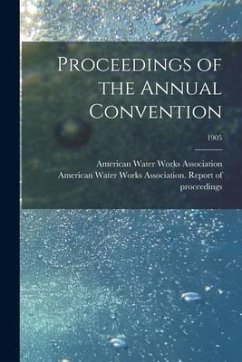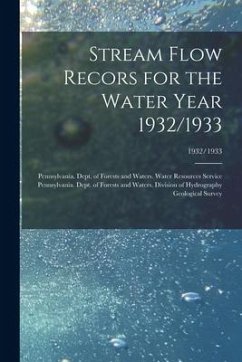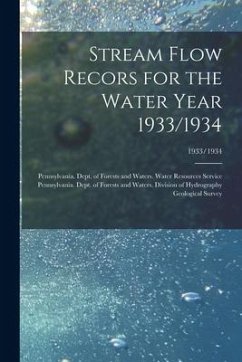
Fundamentals of Hydrometeorology
Versandkostenfrei!
Versandfertig in über 4 Wochen
130,99 €
inkl. MwSt.

PAYBACK Punkte
65 °P sammeln!
Fundamentals of Hydrometeorology examines the dynamic processes of water moving into and out of the atmosphere and subsequently offers a critical understanding of the atmospheric processes that produce significant precipitation. It presents not only foundational research on these processes, but also the tools and methods for monitoring, observing, and interpreting them. Precipitation extremes continue to grow in scope and frequency from local to global scales. Fundamentals of Hydrometeorology addresses the complexities of key water/atmosphere dynamics, beginning with factors that drive atmosph...
Fundamentals of Hydrometeorology examines the dynamic processes of water moving into and out of the atmosphere and subsequently offers a critical understanding of the atmospheric processes that produce significant precipitation. It presents not only foundational research on these processes, but also the tools and methods for monitoring, observing, and interpreting them. Precipitation extremes continue to grow in scope and frequency from local to global scales. Fundamentals of Hydrometeorology addresses the complexities of key water/atmosphere dynamics, beginning with factors that drive atmospheric water vapor into the atmosphere via evaporation and evapotranspiration. It also discusses water vapor transport in the atmosphere and critical topics in precipitation dynamics, including frozen, liquid, and mixed-phase processes. The book is also key to applying these concepts to real-world problems, including lack of precipitation and drought processes as well as large-scale dynamical patterns impacting excessive precipitation.




![Ice and Ice-work in Newfoundland [microform] Cover Ice and Ice-work in Newfoundland [microform]](https://bilder.buecher.de/produkte/65/65598/65598520n.jpg)



![London Water Supply [electronic Resource]: a Retrospect and a Survey Cover London Water Supply [electronic Resource]: a Retrospect and a Survey](https://bilder.buecher.de/produkte/65/65622/65622144n.jpg)

![Schedule of Rates, and By-laws, Rules and Regulations Affecting the Same, Stratford, Ontario [microform] Cover Schedule of Rates, and By-laws, Rules and Regulations Affecting the Same, Stratford, Ontario [microform]](https://bilder.buecher.de/produkte/66/66160/66160981n.jpg)

